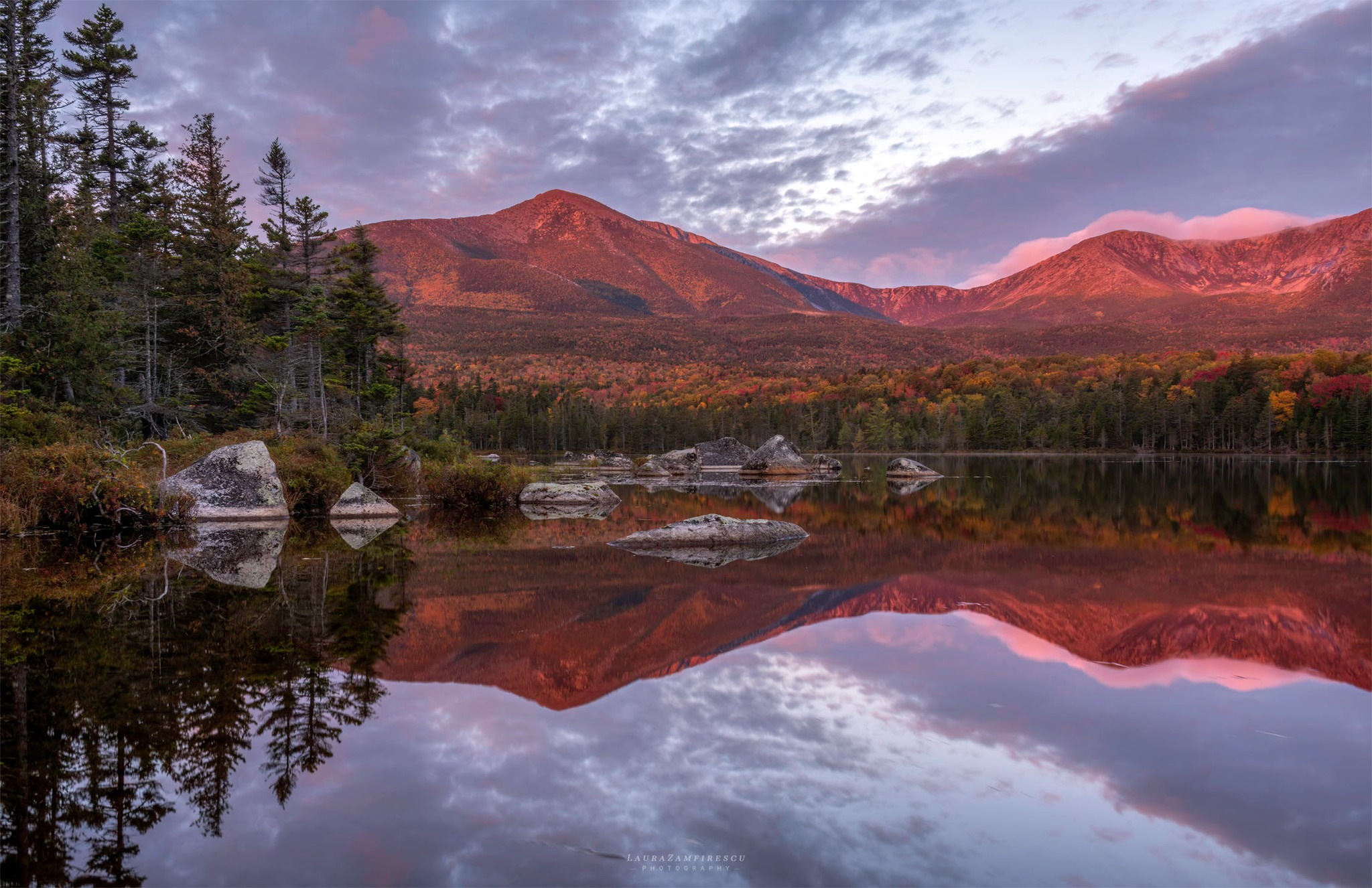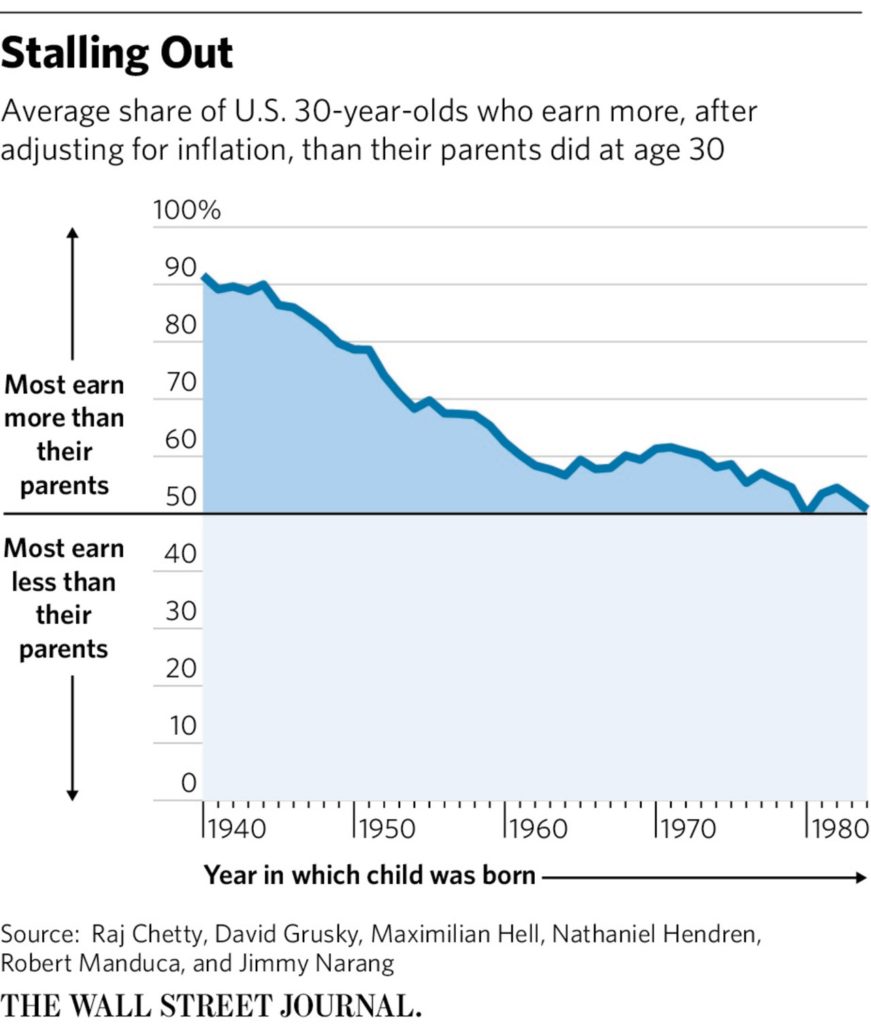The Daily Escape:

Baxter Lake, Baxter State Park, ME – September 2022 photo by Laura Zamfirescu Photography
“We moved to a better neighborhood”. That’s the story of millions of Americans whose lives tracked toward success. In a way, that IS the American Dream, to escape from where you are to someplace better, safer, more upscale.
That version of the American Dream dovetails with our 21st century desire to be isolated from other people. We order dinner from Doordash. We buy housewares from Amazon. We buy automobiles online to avoid talking to the manager at the dealer.
Many of Wrongo’s grandkids say that they hate people, meaning that they only wish to speak with their friends, and not to anyone who might be their customer.
So is alone in a better neighborhood now the American Dream? What about billionaires? They already live in the best neighborhoods. They have battalions of staff insulating them from the rest of us. Have you ever had a meeting with a multi-billionaire? It isn’t an easy thing to do. Over the years, Wrongo has worked for two of them, and they were perfectly fine individuals. But they were completely insulated.
And they made their money the old-fashioned way, inheriting it from their Robber Barron parents.
Today’s mega-rich have mostly found ways to extract value from consumers and businesses via software. Take a look at Bloomberg’s Billionaires Index. It’s a list dominated by people who have made money from the digital technology revolution.
And what are they doing with all this wealth? Many are quietly plotting their own survival against the world’s demise. Wrongo heard an interview with Douglas Rushkoff, author of “Survival of the Richest: Escape Fantasies of the Tech Billionaires”. Rushkoff is Professor at City University of NY, also a founder of the Laboratory for Digital Humanism, and a fellow at the Institute for the Future.
Rushkoff explained that billionaires worried about the end of the world know their money will likely be of little value. They’re thinking about political instability, social breakdown, and environmental catastrophe. A number of the world’s richest people are preparing for these events by building bunkers in New Zealand and in other remote locations. From Rushkoff:
“Most of these guys that we think are going to save us are actually wishing for the apocalypse. This is not just something that they fear. It’s something that at this point they’re ready to bring on.”
The book came from a meeting between Rushkoff and five billionaires at a desert resort. The topic? How to survive the catastrophe they know is coming. More from Rushkoff:
“And they spent the rest of the hour asking me really to…test their survival strategies…Do we go underground? Do I get an island?….What about space? And we ended up spending the majority of the hour on the single question, How do I maintain control of my security force after my money is worthless?…..because they’ve all got this money, they’ve…contracted Navy SEALs to come out to their compounds. But then they’re thinking, well, what do we do if our money’s worthless, then why are the Navy SEALs not just going to kill us and take all the stuff?”
Remember the back-yard bomb shelters of the 1950s: With that threat, how big would you want your bomb shelter to be? How luxurious and well-guarded? If the world were destroyed, you would try to live in that shelter full-time. Same thing with these billionaires.
Think about it: They want to use 21st century technology to revive a 13th century social order and impose it on the land and people who live around their protected fortresses. Missing from the plans of tech billionaires? Ideas to stop authoritarianism, decrease inequality, heal social divides, or slow climate change. Rushkoff explains:
“Even if we call them genius technologists, most of them were plucked from college when they were freshmen….They came up with some idea in their dorm room before they’d taken history, or economics, or ethics, or philosophy classes, and so they lack the wisdom needed to oversee their own perverse amounts of wealth.”
So maybe we shouldn’t rely on these guys to protect our future. In fact, Rushkoff says that these people who have the most power to change our current trajectory have no interest in doing so.
At this point in human history, making money is all that matters. In capitalist societies your worth is directly correlated to how much money you have. Everybody understands this. Billionaires are the most prominent symptom, but they aren’t the disease. Capitalism is the disease.
Time to wake up America! There is absolutely zero downside to relieving these people of a big slice of their wealth and putting it toward rehabbing our society. To help you wake up, watch, and listen to Carlos and Cindy Blackman Santana lead a Playing for Change global group of musicians in “Oye Como Va”:


